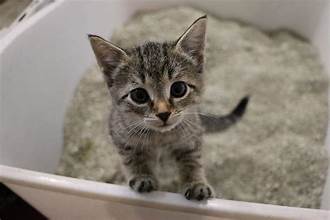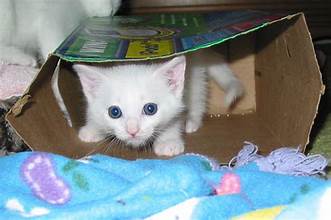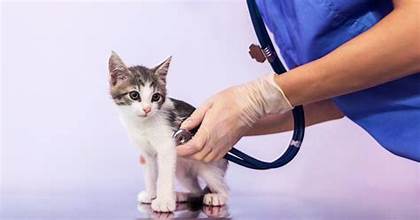Kittens, those adorable fur bundles
Bring immense joy and require specific care to thrive. Here’s a delightful rundown of the kitten care basics:
Nutrition
- Kittens need high-quality kitten food formulated for their growing bodies. This food gives them the essential nutrients to develop strong bones, muscles, and immune systems.
- Kittens typically eat more frequently than adult cats. Until they are six months old, they may need to be fed three to four times a day.
- Consult your veterinarian about the right food type and portion sizes for your kitten’s age, breed, and activity level.
- Always provide fresh, clean water for your kitten.

Litter Box
- You can show your kitten to the litter box when you’re kitten around four weeks old.
- Provide. a litter box that is large enough for your kitten to turn around comfortably.
- Provide a clean litter box in an easily accessible location. Kittens use the litter box quickly, mainly if their mother uses one.
- Choose a clumping litter made of natural materials, unscented, and specifically labeled as safe for kittens.
- Clean the litter box daily and completely change the litter once a week. This simple task ensures your kitten’s comfort and hygiene.

Shelter and Comfort
- Kittens need a warm, safe, draft-free place to sleep. Provide a cozy bed and soft blankets.
- Provide a comfortable bed in a quiet location away from drafts.
- Kittens also love to climb and perch. Offer scratching posts and cat trees to keep them entertained and protect your furniture.
- Cardboard boxes turned on their sides make excellent hiding spots for shy kittens.

Healthcare
- Schedule a checkup with a veterinarian within a week of bringing your kitten home. The vet will assess your kitten’s health, administer vaccinations, and discuss parasite prevention.
- When you visit, your veterinarian will perform a physical exam, discuss vaccinations, and answer any questions you may have.
- To protect them from preventable diseases, kittens will need vaccinations, including those for feline distemper, herpesvirus, and rabies. You will get a vaccination schedule from your veterinarian.
- Deworming is also essential to keep your kitten free of parasites. It involves administering medication to eliminate internal parasites like roundworms and hookworms, which can cause serious health issues in kittens.
- Be aware of signs of illness in kittens, such as vomiting, diarrhea, lethargy, sneezing, loss of appetite, or changes in litter box habits.

Playtime and socialization
- Kittens are full of energy and need playtime to stay stimulated.
- Kittens are naturally curious and energetic. Engage them in frequent play sessions with kitten-safe toys like feather wands or jingle balls.
- Playtime is a great way to bond with your kitten, provide them with much-needed exercise, and help them. Develop hunting instincts
- Socializing your kitten from a young age is essential, positively exposing them to new people, places, and experiences.
- Socialization helps kittens grow into well-adjusted cats who are comfortable with change.

Scratching Post:
- Provide a scratching post to encourage your kitten to scratch there instead of on your furniture.
- Choose a scratching post tall enough for your kitten to stretch out fully and sturdy sufficient for its claws to dig into.

These essential care tips
Help your kitten grow into a happy and healthy adult cat. Remember that kittens can scratch and bite during play, so be gentle and redirect them to appropriate toys if they get too rough.




